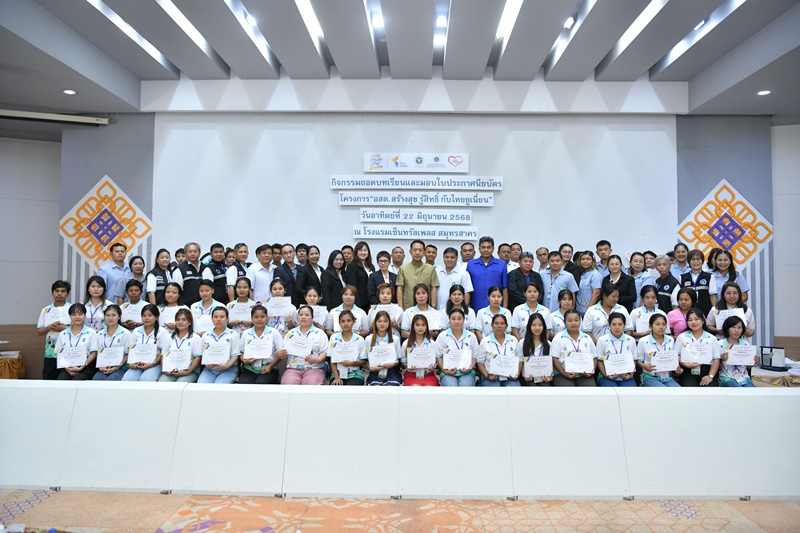Thai Union Group PCL, a global seafood leader, has launched an inspiring initiative called the Migrant Health Volunteer Program to improve access to inclusive healthcare for migrant workers in Samut Sakhon, Thailand. The program, developed in partnership with the Samut Sakhon Provincial Public Health Office, the Faculty of Tropical Medicine at Mahidol University, and the Proud Association, focuses on training migrant workers to serve as health volunteers and community health advocates.
Launched in September 2024, the program has already trained 109 migrant workers who live and work in Samut Sakhon. These volunteers were equipped with essential knowledge in preventive care, healthcare rights, and non-communicable diseases (NCDs) through both online and on-site training. After completing their sessions, they began assisting local health officials at the Subdistrict Health Promoting Hospital and other community programs, with 23 volunteers serving as interpreters to help healthcare workers communicate effectively with migrant patients.
The initiative addresses one of Thailand’s biggest health challenges—non-communicable diseases, which account for 74% of deaths nationwide. Common issues among migrant workers include hypertension, diabetes, and work-related muscle disorders. Many of these health risks are linked to daily habits such as high-sodium diets, energy drink consumption, and smoking. The program aims to increase awareness and preventive action within the migrant community to reduce these risks.
According to Sammie Ho Dumas, Senior Director of Sustainability & Social Impact at Thai Union Group, the initiative aligns with the company’s commitment to “Healthy Living” and community well-being. “Access to accurate information on everyday health issues empowers people to make informed decisions. Migrant workers are valued members of our communities, and we remain committed to supporting their holistic well-being,” she said.
Manunchaya Inklai, President of the Proud Association, emphasized that empowering migrant workers as health volunteers builds stronger and more resilient communities. “When volunteers understand their health rights and responsibilities, they can pass that knowledge to others, creating a ripple effect that improves the overall quality of life,” she noted.
Dr. Prakit Sarathep, Chief of Public Health for Samut Sakhon Province, praised the program for strengthening health literacy among migrant workers and ensuring access to medical care and insurance. He confirmed that the Samut Sakhon Provincial Public Health Office plans to expand the program and provide continuous training in line with the standards of the Department of Health Service Support, Ministry of Public Health.
So far, the program has reached over 1,500 community members, with volunteers helping connect workers to vaccination drives, health insurance, and information sessions across construction sites, factories, dormitories, and child centers. Beyond individual health improvements, these volunteers are helping create a more inclusive and equitable public health system for all.
As the project grows, volunteers will receive updated training and official registration under the Ministry of Public Health, ensuring long-term sustainability and a continued push for equal healthcare access. The success of this program demonstrates how public-private collaboration can transform communities and strengthen health systems through empowerment and education.

